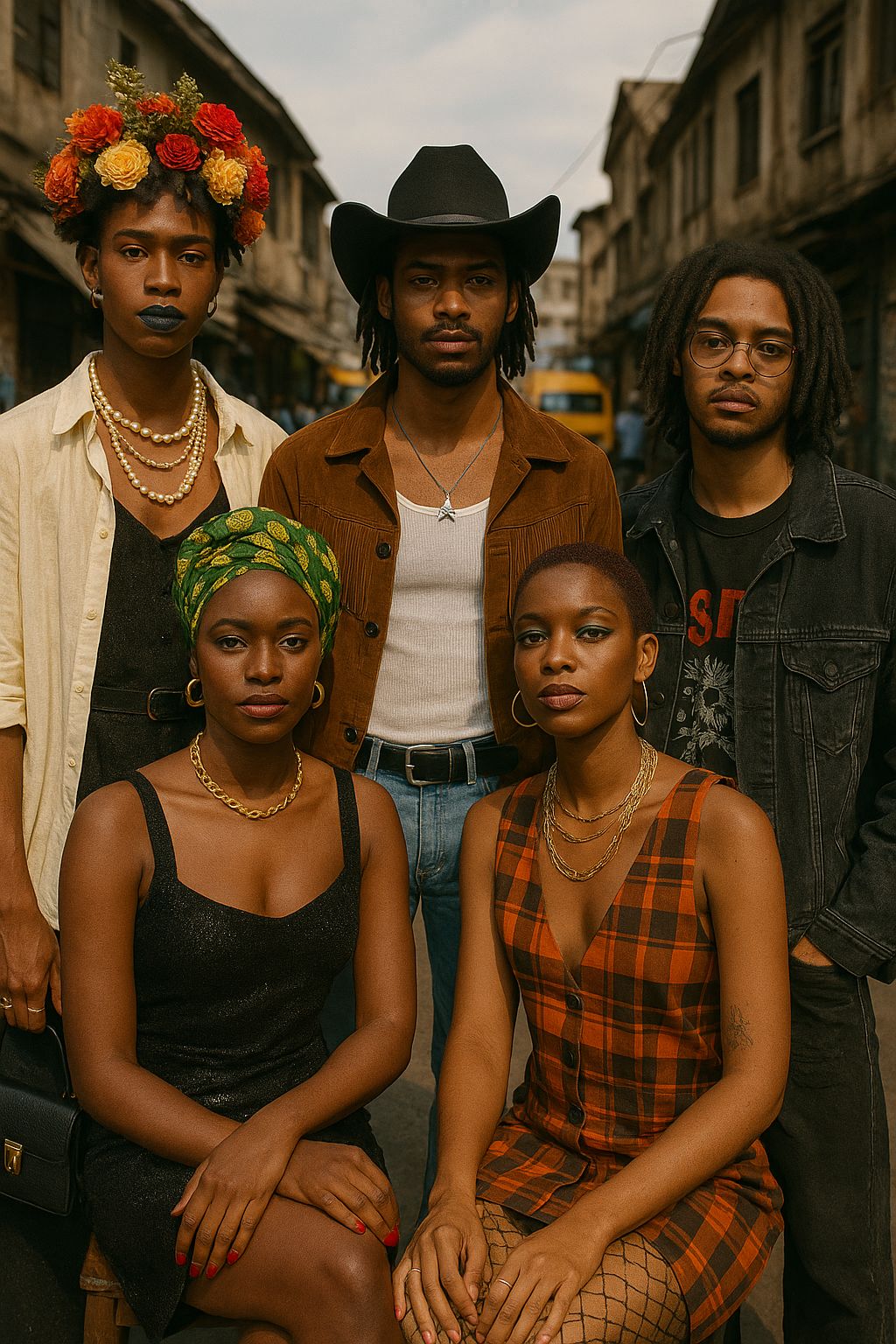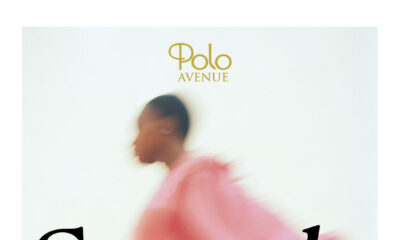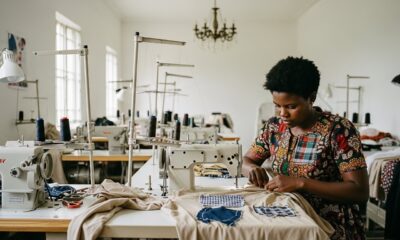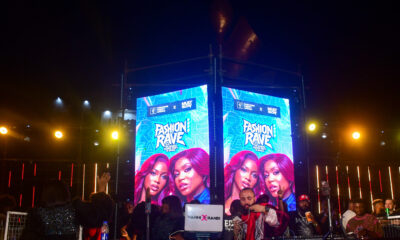Features
Christianah Fasanya: The Realities of Dressing Differently in Nigeria

Nigerians have a deep appreciation for fashion, as evident in how they accessorise with gold, silver and expensive jewellery for different events. The coordination of purses with shoes and the intricate designs in their clothing showcase Nigerians’ unique sense of style. This fashion consciousness is displayed during weddings, birthdays, and even funerals.
However, being a fashion enthusiast in Nigeria comes with various challenges. One of the biggest hurdles is dealing with comments from parents, friends, siblings and even strangers on the streets. There is a lack of acceptance for fashion styles that differ from traditional Nigerian attire. Styles such as Alte, chic, cowboy, Barbie, preppy and grunge are generally not well received, especially by older generations who often struggle to understand why younger individuals dress in ways that reflect Western influences.
People who embody an androgynous style have remained true to themselves and paved the way for other fashion enthusiasts. The rise of social media platforms like Instagram and TikTok has encouraged more Nigerians to embrace and experiment with diverse fashion styles. Nevertheless, due to the conventional nature of society, many fashion enthusiasts continue to face criticism and scrutiny from the public. This can lead to insults from parents and strangers, as their styles are often misunderstood.
Opara Boy‘s experience reflects a broader reality for many young Nigerians who dare to explore fashion beyond what’s considered “acceptable.” A creative and multi-talented lover of fashion, he is a designer and stylist who loves to curate experiences and tell stories through his crafts. When asked about his sources of inspiration, he said that culture and the desire to feel good drive him. Opara enjoys creating designs that empower and command respect, viewing fashion as a means of expression. Opara’s style can be described as “simple but never basic”, and he refuses to wear anything that feels ordinary.
Despite his chic and straightforward style, Opara still faces criticism from strangers. “You are a man; you shouldn’t be dressed that way,” they said to him.
A comment that mainly stuck with him was when someone told him he would be condemned because of his style. However, after discussing his style with his mother, a typical African mom, she encouraged him to keep embracing his individuality as long as he wasn’t hurting anyone. This taught him how to cope with criticism. During the Lagos Fashion Week, someone remarked on his dress, “Who is this one wearing flowers on their head?” which led to several comments on X. Opara, however, didn’t take this to heart, as he has learned how to cope with criticism.
He explained that he has always believed he is different and that as long as his style makes him feel good, the negativity is just noise. He has refused to be confined by societal norms. His social circle is carefully curated, and they have supported his style like his family members.
Elizabeth knows this scrutiny well. A fashion content creator and entrepreneur, she’s had to navigate both admiration and judgment, especially within the academic environment of a university setting. As a medical student at the University of Ibadan, she is aware that people give her a look that says, “When will she be serious with her life?” She frequently deals with the stereotype that “fashionable students aren’t smart”, especially in a science-based field, despite not always dressing up for school. She
Elizabeth recounted when some kids on the road called her a masquerade and also when someone said to her face that they didn’t understand her mode of dressing. She discussed going viral on the internet when a random blogger took her video and uploaded it. She felt terrible because of the comments, but gained many followers, encouraging her. She believes bad PR is also PR. When asked how she copes with these comments, she said that she has learnt to thrive over these comments; she also gets encouraged by her friends and family and believes she must be strong to thrive in the fashion scene. She has learnt not to think about these comments because once a fit looks good, she doesn’t care what anyone says. Elizabeth believes it’s unfair to drag or insult anyone for their outfits.
Chizaram, too, understands what it means to stand out. Even in spaces with dress codes or uniforms, he finds ways to weave his identity into what he wears, though it hasn’t always been well received. He is a fashion enthusiast who loves to experiment with his style, even when confined by the rules of an official uniform. He finds ways to infuse his personality into his attire. Despite being accustomed to criticism, he often hears comments like “You look queer” or “You are doing too much,” which are frequently directed at him in person. Although he has supportive friends at school, some still make remarks about his style, which he feels the need to address.
Chizaram has also faced comments from lecturers. He recalls an incident where a random lecturer approached him and said he recognised his type based on the trousers he was wearing, implying that Chizaram was unserious. He believes that understanding and being confident in your choices is essential to not being affected by such comments. Initially, hearing negative remarks can be disheartening. Like anyone, he felt hurt the first time he received a critical comment. While facing comments in person can be upsetting, the online comments, especially those on blogs, can be even more challenging to manage. Although it can be frustrating, he acknowledges that such visibility can also lead to gaining followers.
Stories like Opara’s, Elizabeth’s, and Chizaram’s show that fashion in Nigeria is evolving, but acceptance is still catching up. While platforms like Instagram and TikTok are making space for new forms of expression, real-world encounters often remind enthusiasts just how far there’s left to go.
Fashion enthusiasts want the freedom to express themselves through their outfits without fearing that their choices will upset anyone. I wish Nigerians would become more accepting of diverse styles and support fashion enthusiasts across the country. I hope that the bullying stops and that we all learn to respect individual styles, as they are not harmful. People want to enjoy playing with fashion without being pigeonhole-ed or stereotyped. While it may not be traditionally embraced, everyone should have the opportunity to have fun with fashion.





















